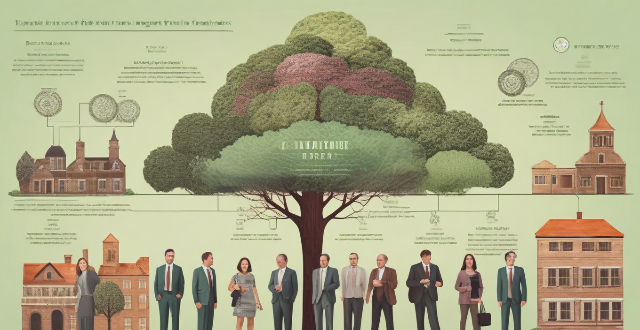Country Requirements

Do I need a visa if I'm only staying in the country for a few hours ?
Do I Need a Visa If I'm Only Staying in the Country for a Few Hours? Traveling to a foreign country often involves understanding the visa requirements, even if your stay is only for a few hours. The need for a visa depends on factors such as the purpose of your visit, the duration of your stay, and the specific regulations of the country you are visiting. Some countries offer visa exemptions for brief transit stays, especially if you remain in the airport and do not enter the country's territory. For business meetings or other activities that require leaving the airport, a visa may be necessary regardless of the duration. Countries often have specific rules for visits shorter than 24 hours or even up to 90 days, which may affect visa requirements. Generally, if your stay exceeds the short-term visit limit, a visa will be required. Some countries have agreements that allow citizens of certain nations to enter without a visa for short periods. For layovers or connecting flights, some countries issue transit visas that allow limited time within the country or its airports. To determine visa requirements, research the country's visa policy, consult with the airline, check travel advisories, and contact the embassy directly if unsure. Whether you need a visa for a short stay largely depends on the country's immigration policies and the purpose of your visit. It is essential to research and understand these requirements before traveling to avoid any complications at border control.

What are the requirements for a tourist visa ?
The article provides a comprehensive list of general requirements for obtaining a tourist visa, which include having a valid passport, completing a visa application form, providing recent photographs, presenting a detailed travel itinerary, demonstrating financial stability, possessing health insurance, submitting an invitation letter if applicable, explaining the purpose of visit, and possibly offering a police clearance certificate. It emphasizes the importance of checking with the embassy or consulate of the destination country for specific instructions due to variations in requirements among different nations.

What are the legal requirements for data privacy ?
Data privacy is a fundamental right that ensures the protection of personal information from unauthorized access, use, or disclosure. The legal requirements for data privacy vary by country and jurisdiction, but there are some general principles that most countries follow, such as consent, limited purpose, transparency, security, onward transfer, and rights of the individual. Examples of legal requirements in different countries include the Federal Trade Commission Act, Gramm-Leach-Bliley Act, Health Insurance Portability and Accountability Act in the United States; the General Data Protection Regulation in the European Union; and the Personal Information Protection and Electronic Documents Act and Personal Health Information Protection Act in Canada.

What are the economic implications of pursuing carbon neutrality for a country ?
Pursuing carbon neutrality has both positive and negative economic implications for a country, including job creation, innovation, energy independence, short-term costs, impacts on traditional industries, and potential carbon leakage.

What happens if I don't declare all the cash I'm carrying when entering a country ?
The text provides a comprehensive overview of the potential penalties and inconveniences that may arise from not declaring cash at customs when entering a country. These include fines, seizure of funds, travel restrictions, administrative inconvenience, and loss of face. To avoid these consequences, it is recommended to be honest about the amount of cash carried, keep receipts, research regulations, and consult professionals if necessary.

What are the technical requirements for using a remote education platform ?
The technical requirements for using a remote education platform include hardware such as a computer or laptop, webcam, microphone and speakers, and a stable internet connection. Software requirements include compatibility with popular operating systems and browsers, as well as any necessary plugins or extensions. Network requirements involve sufficient bandwidth, appropriate firewall settings, and VPN access if needed. Security requirements include strong authentication mechanisms, encryption of data transmission, and compliance with data privacy regulations. Accessibility requirements encompass mobile support, keyboard navigation, and screen reader compatibility. Meeting these technical requirements will help create an engaging and inclusive learning environment for all users.
![What are some must-try dishes in [insert city/country] ?](/imgs/2f8b31ee-f62a-46e3-8828-37a4af062f9b.png)
What are some must-try dishes in [insert city/country] ?
Must-Try Dishes in [Insert City/Country]: A Culinary Journey When exploring the culinary delights of a new city or country, it's always exciting to try local dishes that showcase the unique flavors and ingredients of the region. In this article, we will delve into some must-try dishes in [insert city/country]. The first dish on our list is [dish name], known for its rich and flavorful taste. It typically consists of [ingredients/preparation method] and is a perfect representation of the local cuisine, offering a blend of traditional spices and fresh ingredients. Next up is the popular dish [dish name], made with [ingredients/preparation method]. This dish is not only delicious but also visually appealing, making it a feast for both your taste buds and eyes. Another unique dish found in [insert city/country] is [dish name], characterized by its [ingredients/preparation method]. This dish offers a unique twist on traditional [insert city/country] cuisine, combining familiar flavors with unexpected ingredients. Last but not least is the beloved dish [dish name], featuring [ingredients/preparation method]. This dish is a true representation of [insert city/country]'s street food culture, offering a quick and tasty snack for locals and tourists alike. In conclusion, [insert city/country] offers a wide variety of must-try dishes that cater to different tastes and preferences. From traditional staples to unique twists on classic recipes, there's something for everyone to enjoy. So next time you find yourself in [insert city/country], be sure to give these dishes a try!

In what ways do immigration policies affect the cultural diversity of a country ?
Immigration policies play a significant role in shaping the cultural diversity of a country. Policies that promote multiculturalism, facilitate family reunification, and provide opportunities for legal migration can enhance cultural diversity. In contrast, strict immigration controls, deportation policies, and anti-immigrant sentiments can hinder it.

Are there any legal requirements for installing a burglar alarm system ?
Legal Requirements for Installing a Burglar Alarm System Security is an essential aspect of modern life, and installing a burglar alarm system can significantly enhance the safety of homes and businesses. However, there are legal requirements that must be met before installing such systems. This article discusses the legal requirements for installing a burglar alarm system, including obtaining permits and licenses, checking insurance requirements, and adhering to local regulations and ordinances. By complying with these requirements, you can ensure that your burglar alarm system provides effective security while meeting all legal obligations.

Are there any legal requirements for installing a home security system ?
Home security systems are becoming increasingly popular as homeowners seek to protect their property and loved ones from potential threats. However, before installing a home security system, it is important to understand the legal requirements that may apply in your area. In this article, we will explore some of the key legal considerations when installing a home security system. Local ordinances and regulations, privacy laws, insurance requirements, and maintenance and upkeep are all important factors to consider when installing a home security system. By understanding these legal considerations, you can make informed decisions about protecting your property and loved ones while staying within the bounds of the law.

How long does it typically take to receive a tax refund after leaving a country ?
Leaving a country can be a stressful process, and one of the concerns that many expatriates have is how long it will take to receive their tax refund. The answer to this question depends on several factors, including the country you are leaving, your residency status, the method of application, and the time of year. By following best practices such as filing electronically, providing complete information, following up with tax authorities, and considering professional help, you can help speed up the process and receive your refund more quickly.

What are the maintenance requirements for a parallel hybrid electric vehicle (PHEV) ?
Maintenance Requirements for a Parallel Hybrid Electric Vehicle (PHEV) include regular check-ups of the battery system, engine maintenance such as oil changes and air filter replacement, transmission maintenance including fluid checks and cooler maintenance, tire rotation and pressure adjustment, brake pad and rotor replacement, suspension maintenance like shock and strut replacement, and other tasks such as coolant system checks, wiper blade replacement, and light bulb checks. By following these requirements, you can ensure your PHEV runs smoothly and safely.

What documents do I need to provide for a tourist visa application ?
The text provides a list of essential documents required for a tourist visa application, including a passport with at least six months' validity and two blank visa pages, recent passport photographs meeting specific requirements, a completed visa application form, a detailed travel itinerary, proof of financial means, an invitation letter if applicable, travel insurance, and a cover letter explaining the purpose of the visit. The text emphasizes the importance of gathering these documents beforehand to make the application process smoother and increase the chances of success. It also notes that specific requirements may vary by country, so applicants should check the documentation needs and specifications for each item.

What are the requirements for obtaining a Green Card in the USA ?
The process of obtaining a Green Card in the USA involves meeting specific eligibility criteria, completing necessary forms and submitting supporting documents, attending an interview, undergoing a medical examination, passing a background check, and receiving the card in the mail. To maintain permanent resident status, one must live in the U.S. for at least half of each year, file taxes annually, renew their Green Card every 10 years, and avoid committing certain criminal offenses.

What are the legal requirements for workplace safety ?
Legal requirements for workplace safety include compliance with occupational health and safety laws, implementation of a health and safety management system, provision of personal protective equipment (PPE), reporting of injuries and illnesses, and employee participation in health and safety decisions. These measures ensure the well-being of employees and protect the company from potential legal liabilities.

What are the legal requirements for displaying safety signs in a workplace ?
Legal Requirements for Displaying Safety Signs in a Workplace: Identify hazards, provide clear messages, ensure visibility, use standardized design, maintain signs, comply with regulations, and provide training.

How much does it cost to obtain a tourist visa ?
This detailed guide outlines the cost implications and requirements for obtaining a tourist visa to the People's Republic of China as of July 2024, using the process in the United States as an example. The guide covers visa types, required documents, additional requirements, cost implications, and the application procedure. It also highlights recent simplifications in the document requirements and emphasizes the importance of meeting all specified requirements and being prepared for associated costs.

Can I extend my tourist visa once I arrive in the country ?
This article discusses whether it is possible to extend a tourist visa once arriving in a foreign country. It outlines eligibility criteria, steps to follow for extending the visa, and things to keep in mind while considering an extension. The main points include checking purpose of visit, duration of stay, financial capacity, health and safety; gathering required documents; contacting immigration authorities; attending interview (if required); paying fees (if applicable); waiting for approval; obtaining extended visa; timely application; adhering to laws and regulations; seeking professional help if needed.

How do competitive sports contribute to the growth of a country's economy ?
Competitive sports significantly contribute to a country's economic growth by boosting tourism, creating jobs, generating media and advertising revenue, diversifying the economy, improving social welfare, enhancing urban development, and attracting foreign investments. Major sporting events not only provide temporary employment but also stimulate long-term infrastructure development and technology innovation. Moreover, they foster national unity and health benefits, indirectly contributing to economic stability. Overall, competitive sports are instrumental in showcasing a country's potential on a global scale, leading to numerous economic advantages.
![Are there any travel warnings or advisories that I should be aware of before planning a trip to [insert destination] ?](/imgs/2f8b31ee-f62a-46e3-8828-37a4af062f9b.png)
Are there any travel warnings or advisories that I should be aware of before planning a trip to [insert destination] ?
Before planning a trip to [insert destination], itBefore planning a trip to [insert destination], it of any travel warnings or it is important to be aware of any travel warnings or advisories that may affect your safety and well-being. Here are some steps you can take to ensure a safe and enjoyable trip: 1. Check the government website of the country you plan to visit for an overview of the current situation and any travel warnings or advisories that have been issued. 2. Research local news sources in the destination country to get a better understanding of the current situation and any potential risks. 3. Contact your embassy or consulate directly if you have any specific concerns about traveling to the destination country. 4. Consider purchasing travel insurance to provide coverage for unexpected events such as medical emergencies, trip cancellations, or lost luggage. By following these steps, you can ensure a safe and enjoyable trip while minimizing any potential risks.

How do immigration policies affect the demographics of a country ?
Immigration policies significantly impact a country's demographics, including population size, age distribution, ethnic composition, and socio-economic characteristics. Open borders can lead to population growth and younger demographics, while restrictive policies may result in slower growth or aging populations. Ethnic diversity is influenced by the selection of immigrants based on nationality or skill set. Socio-economic attributes are shaped by the educational background and employment opportunities for immigrants, affecting labor markets and economic performance. Countries like the U.S., Canada, and Australia have seen positive demographic shifts due to their immigration policies, while others like Japan and Hungary face challenges related to population dynamics and diversity.

How do sports boycotts or bans reflect on international relations ?
Sports boycotts or bans are often used as a political tool to express disapproval or to exert pressure on another country. These actions can have significant implications for international relations, as they can be seen as a form of diplomatic action. This essay explores how sports boycotts or bans reflect on international relations and the potential consequences that may arise from such actions. Sports boycotts or bans are often used as a form of protest against perceived injustices or violations of human rights, political disagreements, or other issues that may affect international relations. Historical examples include the African nations' boycott of the 1972 Summer Olympics due to Rhodesia's inclusion, the US-led boycott of the 1980 Summer Olympics in Moscow to protest the Soviet Union's invasion of Afghanistan, and calls for sports boycotts against China over its treatment of Uighur Muslims in Xinjiang province. Sports boycotts or bans can create diplomatic tensions between countries, leading to further escalation of conflicts. They can also have economic consequences for both the host country and participating athletes, as well as limit opportunities for cultural exchange and global unity. As such, it is important for countries to carefully consider the potential consequences before engaging in sports boycotts or bans as a form of political protest.

How often should workplace safety inspections be conducted ?
The frequency of workplace safety inspections is determined by factors like the nature of the business, potential hazards, and regulatory requirements. High-risk industries need more frequent checks, while low-risk ones can be less frequent. Identifying potential hazards, such as physical, chemical, or biological risks, is crucial for setting inspection schedules. Legal requirements, including OSHA guidelines and local regulations, also play a significant role. Adopting best practices like regular training, encouraging employee reports, and periodic reviews can further enhance safety. Overall, a proactive approach to safety inspections helps create a secure work environment.

How do economic indicators differ between developed and developing countries ?
Economic indicators reflect the health and performance of a country's economy, with significant differences between developed and developing countries. Developed countries typically have higher GDP and GDP per capita values, lower inflation rates, more robust social safety nets, and attract high levels of foreign direct investment (FDI). They also score high on the Human Development Index (HDI), have more balanced trade positions, and while income inequality exists, there are often stronger welfare systems to mitigate its effects. On the other hand, developing countries often have lower GDP and GDP per capita, higher inflation rates, less developed social safety nets, and receive less FDI due to perceived risks. They also tend to have lower HDI scores, struggle with trade deficits, and face more pronounced income inequality. However, it is important to note that each country is unique and may exhibit characteristics that do not strictly align with typical developed or developing country traits. Economic indicators should always be considered within the context of a country's specific circumstances.

What are some traditional holiday dishes in your country ?
The text describes the traditional holiday dishes in the author's country. The dishes are an integral part of cultural heritage and are enjoyed by families and friends during festive celebrations. The author mentions four holidays: Thanksgiving, Christmas, Easter, and Halloween. For each holiday, the author lists popular dishes that are commonly served. The dishes include roasted turkey, mashed potatoes, gravy, green bean casserole, sweet potato casserole, cranberry sauce, pumpkin pie, roast beef or ham, cranberry relish, scrambled eggs, bacon, hash browns, pancakes, fruit salad, candy bars, caramel apples, popcorn balls, ghostly cupcakes, spiced cider, and hot chocolate. The author concludes by stating that these traditional holiday dishes are important for celebrating special occasions and bring families together.

Which country has won the most FIFA World Cup titles ?
The country that has won the most FIFA World Cup titles is Brazil, with a total of five (5) titles. The Brazilian national football team is widely considered one of the most successful in the history of the sport. Other countries that have achieved significant success in the World Cup include Germany, Italy, Argentina, and Uruguay.

How do I plan a cross-country cycling route ?
Planning a cross-country cycling route involves determining the starting and ending points, choosing a suitable route, planning daily mileage, booking accommodations/campsites, and packing necessary gear. Factors to consider include distance, terrain, weather conditions, safety concerns, travel restrictions, fitness level, budget, and preferences. Tools like Google Maps, Bikely, or Komoot can help customize the route based on distance, elevation gain, and surface type. Aim for 50-70 miles per day if experienced or 30-40 miles if new to long-distance cycling. Pack spare tubes, pump, multi-tool, first aid kit, food, water, and appropriate clothing for expected weather conditions.
![Are there any cooking classes or food tours available in [insert city/country] ?](/images/2kge/83d95596-30d0-46c5-a688-6d2a9fa66a7e.png)
Are there any cooking classes or food tours available in [insert city/country] ?
In [insert city/country], cooking classes and food tours are available, offering a variety of experiences. Cooking classes range from traditional dishes to street food snacks, with durations from 2 to 4 hours and prices between $30 and $75 per person. Food tours include culinary journeys, tasting adventures, and walking tours, lasting from 4 to 8 hours and costing between $80 and $150 per person. Contact organizers for booking and reservation details.